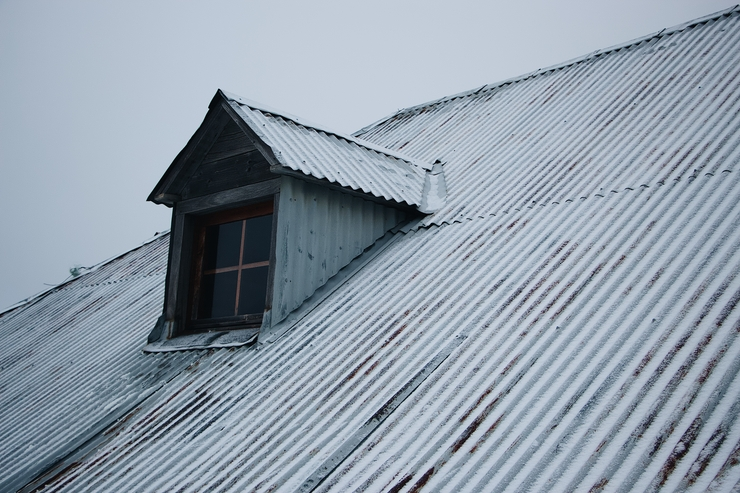Metal roofing panels have become very popular in Delray Beach, Florida, due to their durability, energy efficiency, and sleek modern aesthetic. However, the tropical climate of Delray Beach and its closeness to the Atlantic Ocean pose unique environmental challenges that can test even the most advanced roofing materials. While metal roofing offers many advantages including a long lifespan, fire resistance, and eco-friendliness, it may also imply potential problems.
Homeowners and builders in Delray Beach who are considering or already using metal roofing panels should be aware of the common issues that can arise when the materials are not properly chosen, installed, or maintained. Next, there are some of the most frequent problems associated with metal roofing in this area and how to avoid them and address them.

Corrosion from Salt Air Exposure
Delray Beach’s proximity to the Atlantic Ocean exposes homes to constant salt-laden air, which is highly corrosive to metal surfaces. Especially for standard galvanized steel panels as well as for metal roofing panels that don’t have adequate protective coatings or are made from the wrong type of metal.
Corrosion compromises the integrity of the panels and shortens the roof’s lifespan, leading to costly repairs. For these reasons, it is critical to choose marine-grade aluminum, stainless steel, or galvalume metal panels specifically designed for coastal environments.
Additionally, opt for factory-applied PVDF (Kynar 500) coatings that offer superior protection against corrosion and UV damage.
Hurricane Wind Damage
Due to its geographical location, Delray Beach is prone to hurricanes. Which makes wind resistance a top concern for roofing systems. When not properly installed and secured, or when the panel system is not designed for high-wind zones, metal roofs are vulnerable to wind uplift. Especially during tropical storms and hurricanes. In addition, gaps created by shifting panels can also allow water intrusion.
It is critical to ensure your roofing system is tested and approved under Florida Building Code and Miami-Dade standards. In addition, choose standing seam panels with concealed fasteners and interlocking designs that offer better wind resistance and, of course, work only with contractors experienced in hurricane-rated metal roof installations.
Thermal Expansion and Contraction
Florida sunlight is really intense year round, and metal roofing panels naturally expand and contract due to temperature fluctuations. While this is expected, improper installation or improper design can lead to visible warping or mechanical failures over time. In addition, thermal movement can cause panels to buckle, fasteners to loosen, and sealants to fail, leading to leaks, noise, and structural damage.
To effectively prevent these issues it is necessary to use floating clip systems that allow the panels to move as temperature changes but without damaging connections. It is also important to select flexible sealants that can withstand expansion and contraction and ensure the roof structure accommodates movement without stress.
Noise from Rain and Debris
Compared to other roofing types, metal roofs are quite louder during rainfall, a problem that can get worse given South Florida’s rainy climate. Furthermore, inadequate insulation or underlayment can lead to a “tin can” effect during storms. Reducing indoor comfort and increasing ambient noise.
In addition, falling branches or palm fronds can make significant noise when striking metal panels. An effective solution for these problems is installing a sound-dampening underlayment or rigid foam insulation beneath the panels. These materials help absorb sound and enhance energy efficiency. Also, make sure attic spaces are properly insulated to further reduce indoor noise.
Improper Panel Slope or Drainage
Delray Beach has a rainy climate, especially during the summer months. For that reason, metal panels must be installed at the correct pitch and with proper drainage systems to prevent pooling or water intrusion. Especially around seams or fasteners.
To avoid these problems, it is necessary to use standing seam or mechanically seamed panels designed for low-slope applications and ensure the roof design includes appropriate drainage systems. Such as gutters and downspouts, to lead water away from the structure.
Incompatible Flashing or Fasteners
The fasteners and flashing materials used in a metal roofing system are just as important as the panels themselves. When using the wrong type you may deal with issues such as rust, leaks, or structural damage, and when dissimilar metals (such as copper and steel) are used together, the roof may develop galvanic corrosion over time.
It is critical to choose fasteners and flashing materials that are compatible with the type of metal roofing you’re using. Stainless steel or coated fasteners are ideal to resist corrosion in coastal environments, and of course, always follow manufacturer recommendations for accessory components.
Avoiding Metal Roofing Panels Related Problems in Delray Beach
Metal roofing panels stand out for their long-term value, modern appeal, and strong weather resistance. Which make them an excellent option for any type of construction in Delray Beach. However, having a metal roof also implies problems when the design, installation process, or maintenance fail in considering the unique local environment.
By understanding the common issues and working with qualified roofing professionals who are experienced in South Florida conditions. Homeowners can enjoy all the benefits of metal roofing without dealing with all these troubles. With the right materials and attention to detail, a metal roof in Delray Beach can provide decades of style and aesthetic appeal and, moreover, reliable protection.

